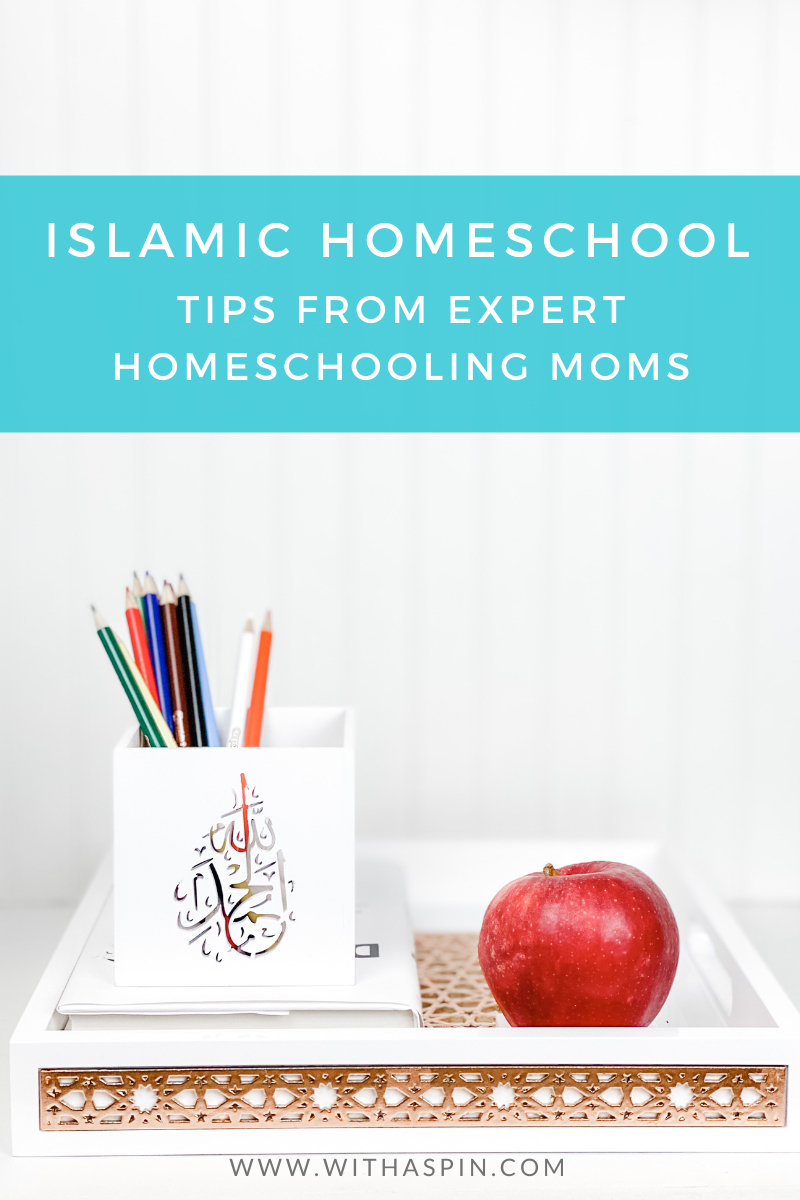
Many parents have been making the leap and starting to home school their children in the recent months and years. Taking full control of your child’s education can be daunting and overwhelming. So we reached out to expert moms, who have been homeschooling their children fully or partially for years, to share their experience and best Islamic homeschool tips for beginner Islamic home schooling parents.
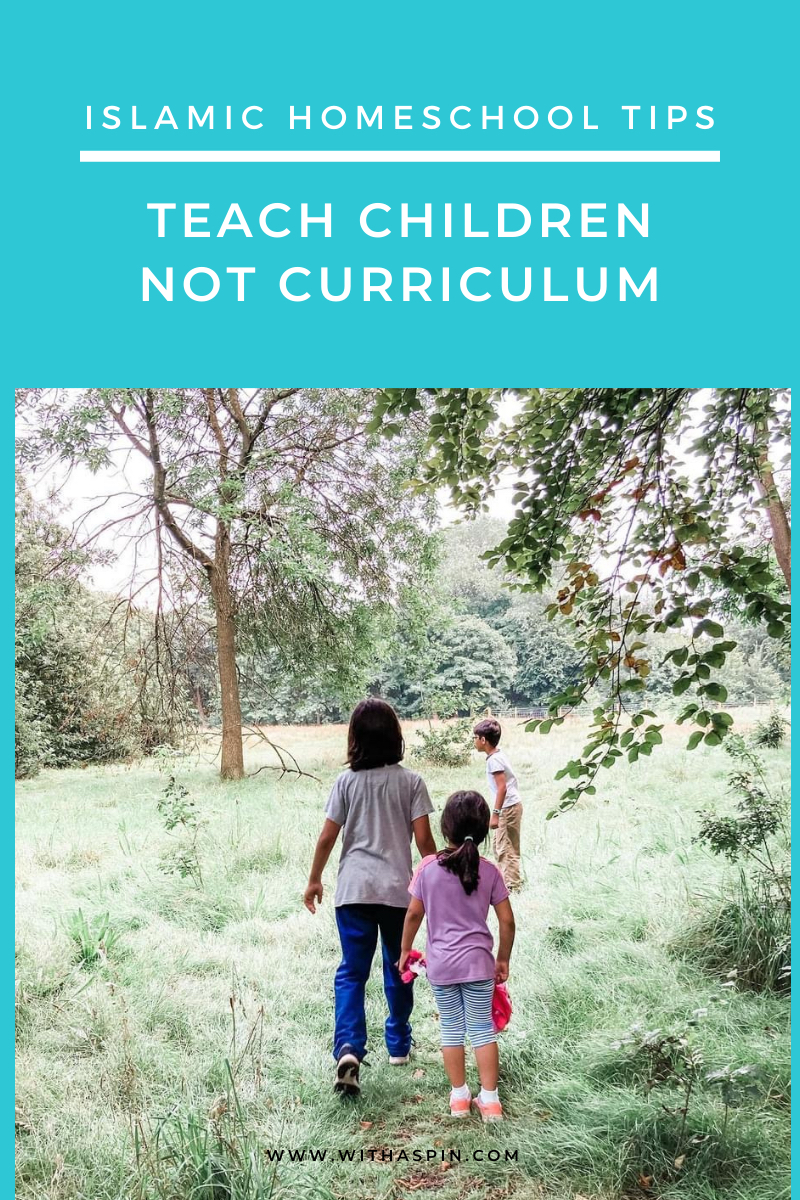
Dr Gemma Elizabeth, Our Muslim Home School, U.K.
If there were one piece of advice I would give to new homeschoolers, it’s to – teach your children, not your curriculum!
It’s so easy to get swept up in our checklists; to hold too tightly onto our homeschool plans.The risk of doing that is that we forget the child on the other end of them. Remember, that your plans are there to help you, not to make you or your children miserable!
If your child already knows something, you can skip those pages. If he is struggling to understand a concept, you can stop and spend longer on that topic. You’re allowed to change your weekly plan and look outside of your current curriculum.
When you homeschool, you make the rules! Yes, it’s good to plan ahead. It’s good to have goals for each week, but hold them loosely. Remember, before you hurry to check the next thing off the list, look at the child in front of you. Because, dear sisters, you are teaching the child NOT the curriculum!
Mother of 4 children (10, 8, 5 and 9 months), homeschooling since the beginning, kids never been to school.
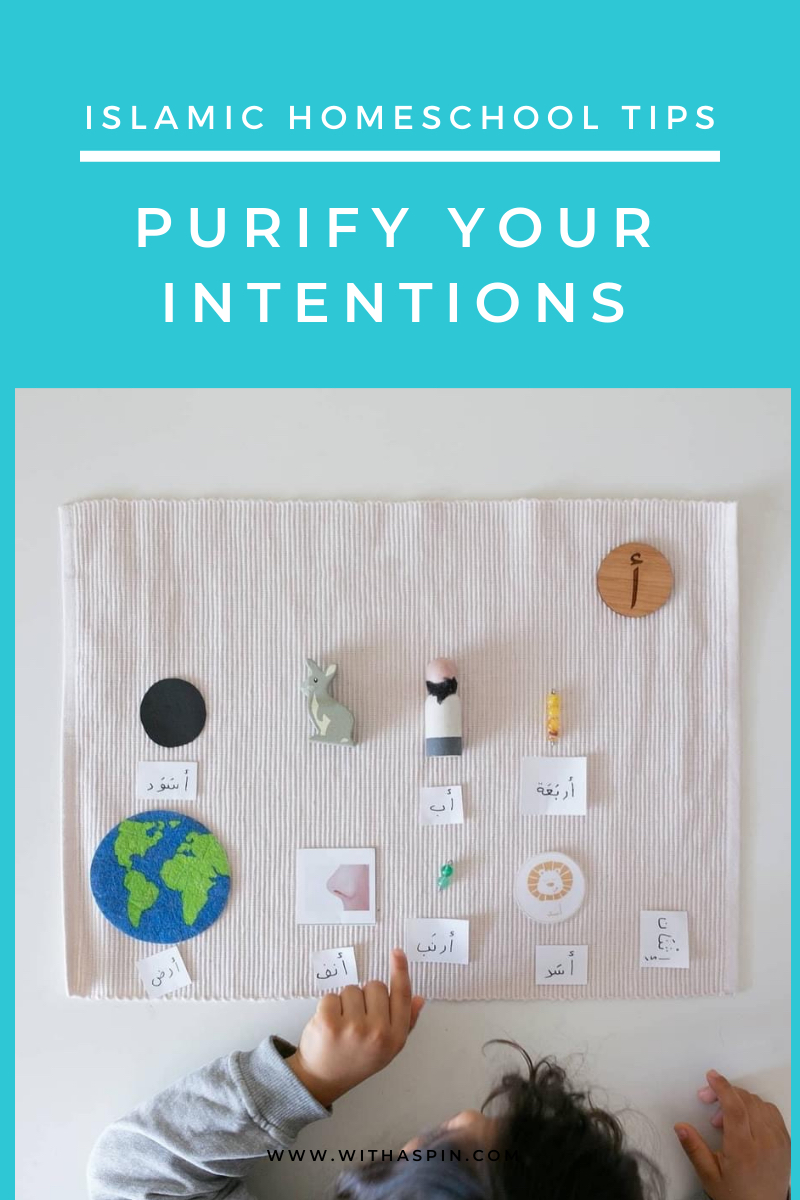
Zayneb Abdullatif, Brb Raising Kids, Australia
Purify your intention each and every morning. It’s easy getting caught up with social media and compare your children to others. I try to stay focused on my main goal which is to raise God conscious independent children. Educate yourself in all areas (i.e Islamic parenting, children development) so you can give your best to your children.
Tarbiyah is utmost important during the early years. Invest your time in them. I try my best to do everything according to Islamic etiquette so my children mimic it.
Follow your child. Plan according to their interests and likes. Get them involved in choosing topics and making materials. Work at their pace. Some days won’t go according to plan. Meltdowns will happen. So will tantrums! It’s ok! Slow down. Take a walk in nature – it always helps!
Last but not the least, be in the moment! Housework can wait.
Mother of 2, step mother to 1
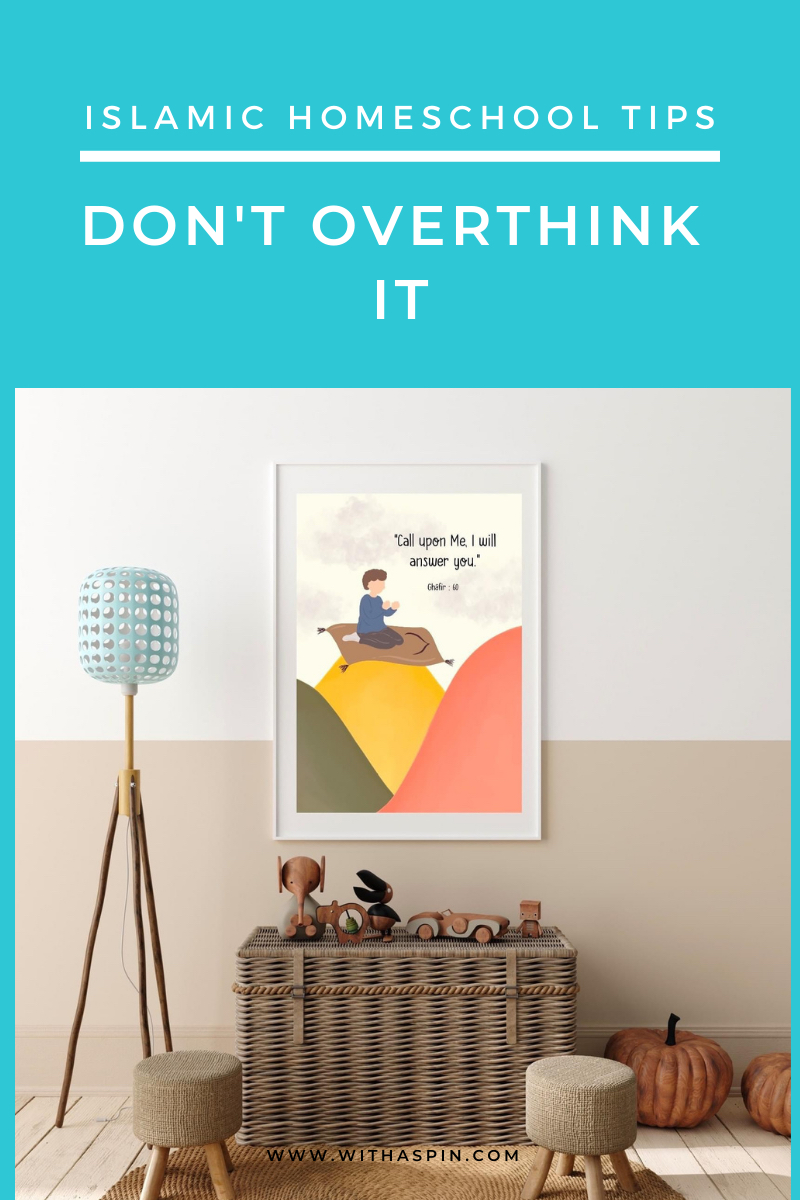
Iman Said, And Then She Said, UK
The most important piece of advice I’d give first time home educators is – don’t overthink it. We can get so caught up in the how and when and what curriculum and which method that even starting becomes off putting and daunting.
Don’t buy everything you see on Amazon/ Instagram – you don’t need all of it. It will sit on shelves gathering dust, and giving you anxiety or you’ll feel compelled to plough through it all and create a stressful environment for you and your children that isn’t conducive to learning.
Your children need very little – don’t let yourself be pushed into thinking that they need more. All they need is plenty of access to books – they can learn SO much simply by reading. Observe their interests, what they’re passionate about and roll with it.
If you have a child that’s passionate about dinosaurs, you can teach English, Math, Geography, History and Science by simply learning about them! Keep your intentions pure, and your focus on what is going in YOUR home with YOUR children and not mums on Instagram with cupboards full of learning resources and materials. Your children will be just fine because they have all they need – you.”
Home educating for 3 years.
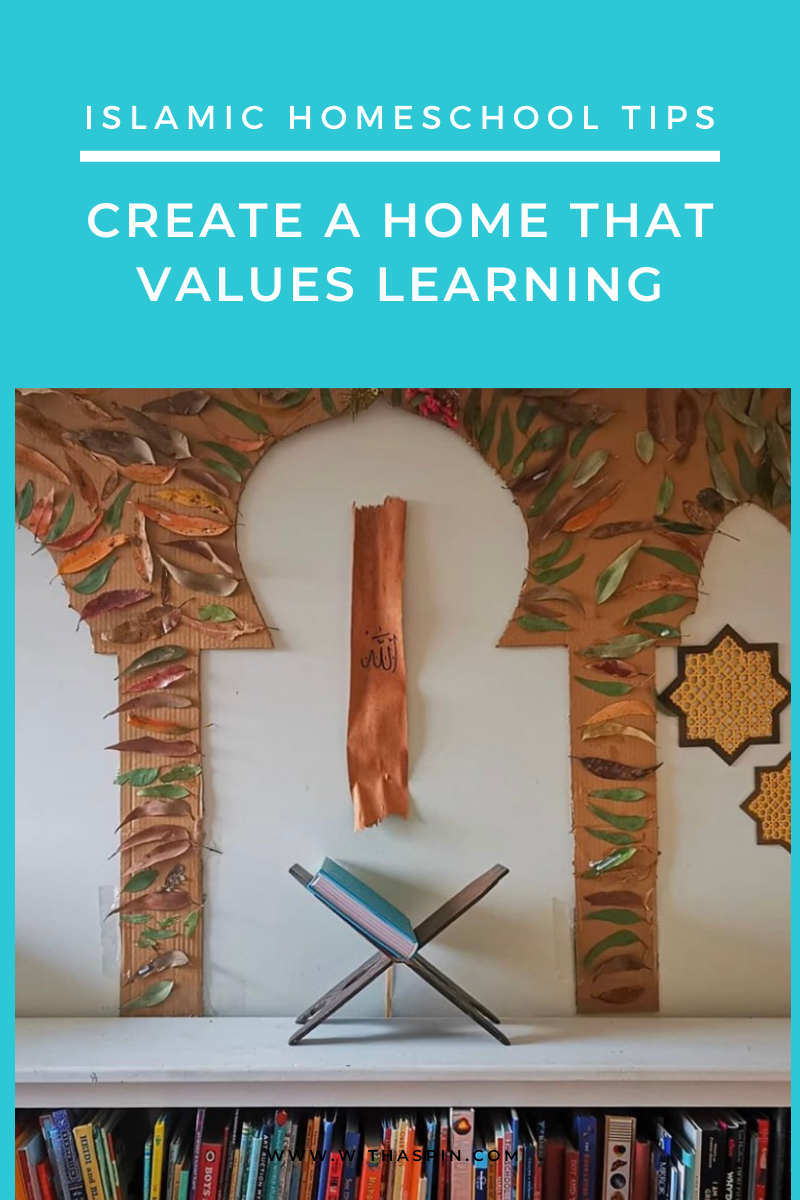
Stephanie, Kitab Kids, Australia
I am not a traditional homeschooler in the sense that my eldest attends primary school. However, I do preschool my two younger children at home, I do Islamic studies with all three and I do believe in fostering an environment of learning within the home- we are always learning and creating.
Create an environment and a culture within the home that values learning. Let your children see you learning. Learn together. Foster creativity and inquisitiveness by giving them the tools to make things and by asking questions. Go on adventures together as a family.
Following on from this, promote learning as a lifelong endeavor. While it is a challenge given the expectations of the society we live in, try not to fixate upon the rigid assessment schedules and upon results and encourage your children to love learning as an end in itself. Too many people finish high school or finish a tertiary qualification and decide that they’re done learning. This should never be the case! It’s a marathon not a sprint to the finish line and there’s always something new to discover. This is perhaps the greatest beauty of homeschooling in my eyes – the capacity to step outside of societal expectations and structures to a greater or lesser extent and escape some of the pressure to conform.
Don’t be afraid to embrace wholeheartedly your child’s interests and find ways to learn through that. Essentially any subject can be taught via an interest. Some of my son’s earliest sight words, colors and numeracy amongst other things came via Thomas the Tank Engine! Also, don’t be discouraged if your child doesn’t immediately take to a theme/topic you have put a considerable amount of time into planning and researching. The solar system may not grip them this year but might be right up their alley next year.
Mother of 3 children, aged 3, 5 and 8.
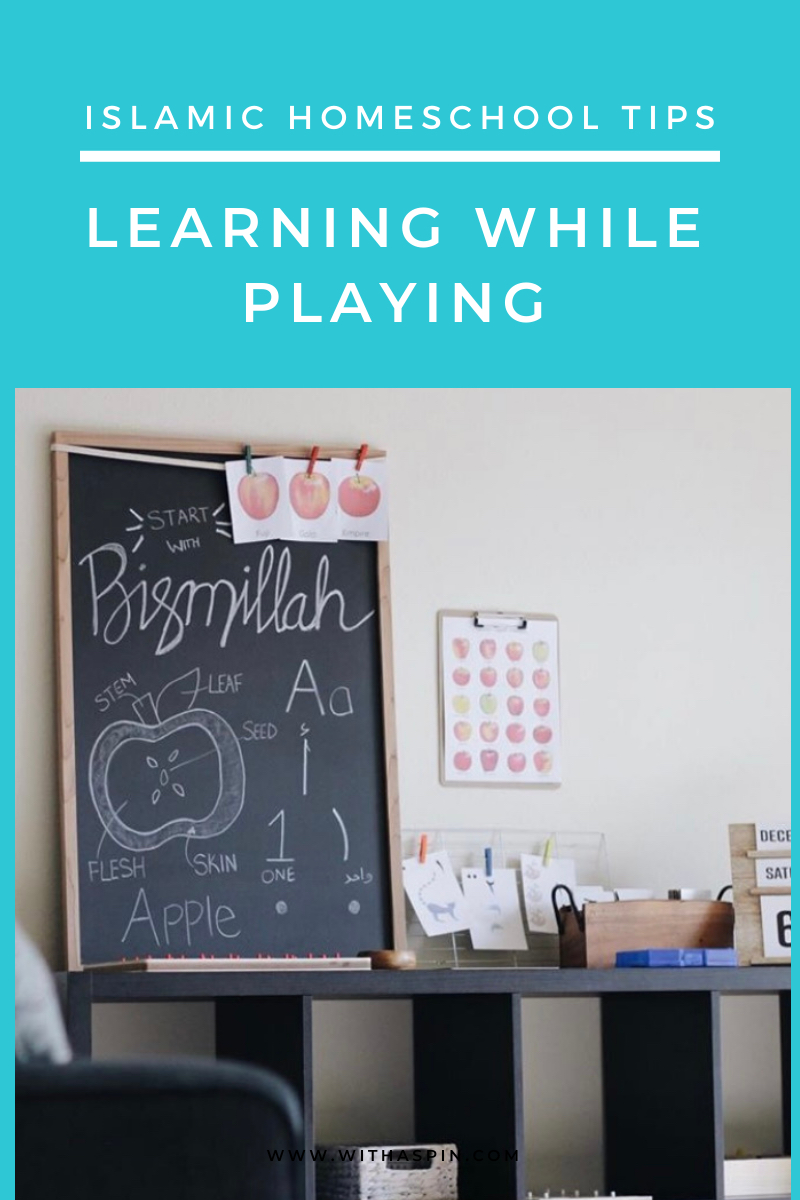
Freshtah, Dear Muslim Child, Canada
Let unstructured, free play be the bulk of your day, especially if you have young children. With so much pressure to have our children perform academic tasks from a young age, we often forget the importance of play. However, play – both unstructured and educational is crucial for child development. It builds your child’s imagination and creativity. It promotes language development and fosters cognitive growth. It reduces anxiety, stress, and irritability for children. It allows your child to work through difficult emotions and allows you to bond with your child. It encourages abstract thinking, which is the foundation for more advanced learning and problem solving.
It may often look like our children are not learning when they are playing, but what they gain from free play, no worksheet can ever achieve. Play is not a reward, but your child’s basic right.
Mother of 2
Hope these ideas help you and ease your Islamic home school journey.
Shop This Post
Read more of our Muslim party, Muslim lifestyle, parenting, Islamic home decor, recipes and other blog posts.
Shop Islamic home decor, gifts, books, and more here.
Stay connected by following us on: Pinterest | Instagram | Facebook | Twitter


Thank you for visiting With A Spin. We hope you enjoy your stay here! Let us know what you think. Leave a comment or question.